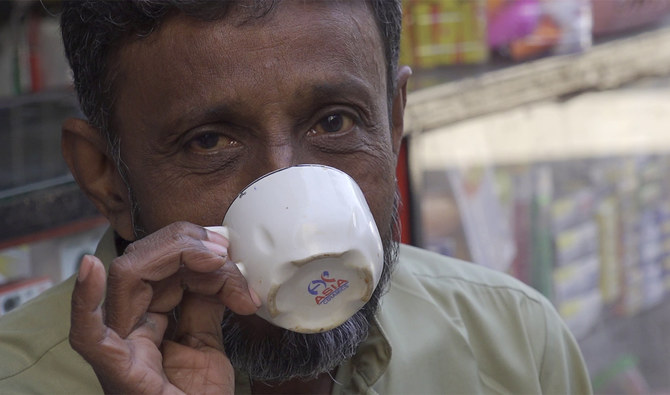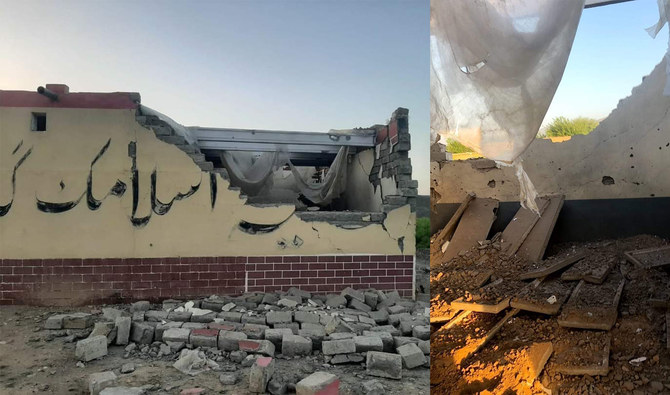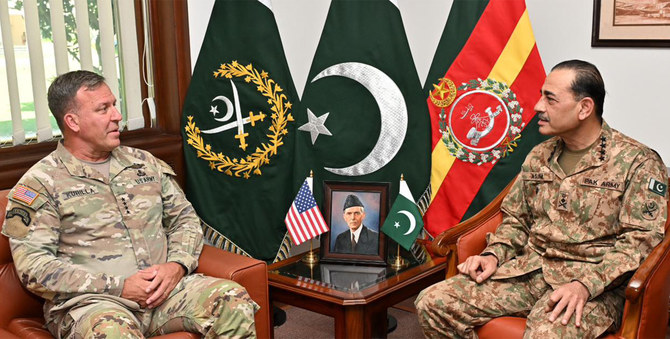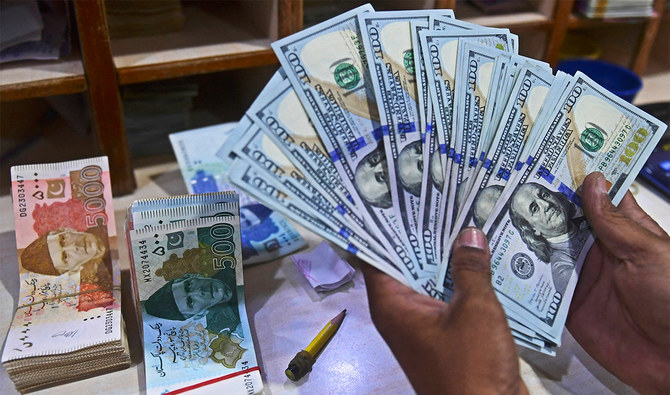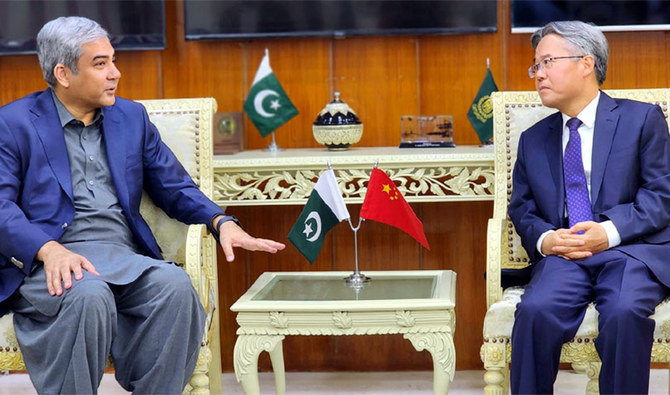KARACHI: In a modest kitchen in Karachi’s Punjab Colony, Hajjra Bibi was busy earlier this month preparing pathiri, puttu, and spiced pathiri, traditional dishes that trace their roots to India’s tropical Malabar coast.
Bibi belongs to Karachi’s Malabari, or Malayali, community, migrants from the Malabar region in India, which forms the present-day state of Kerala and where the main language spoken is Malayalam.
Since more than a century ago, approximately 10,000 Malabari families, or Malayalis, have integrated with other communities in Karachi, Pakistan’s largest and most ethnically diverse city.
“Today, we’ve organized a small party, a get-together, and we’ve prepared all Malayali dishes,” Bibi, a housewife, told Arab News as she mixed ingredients in a bowl while simultaneously tasting curry from a pot. “We will all sit together and enjoy Malayali food.”
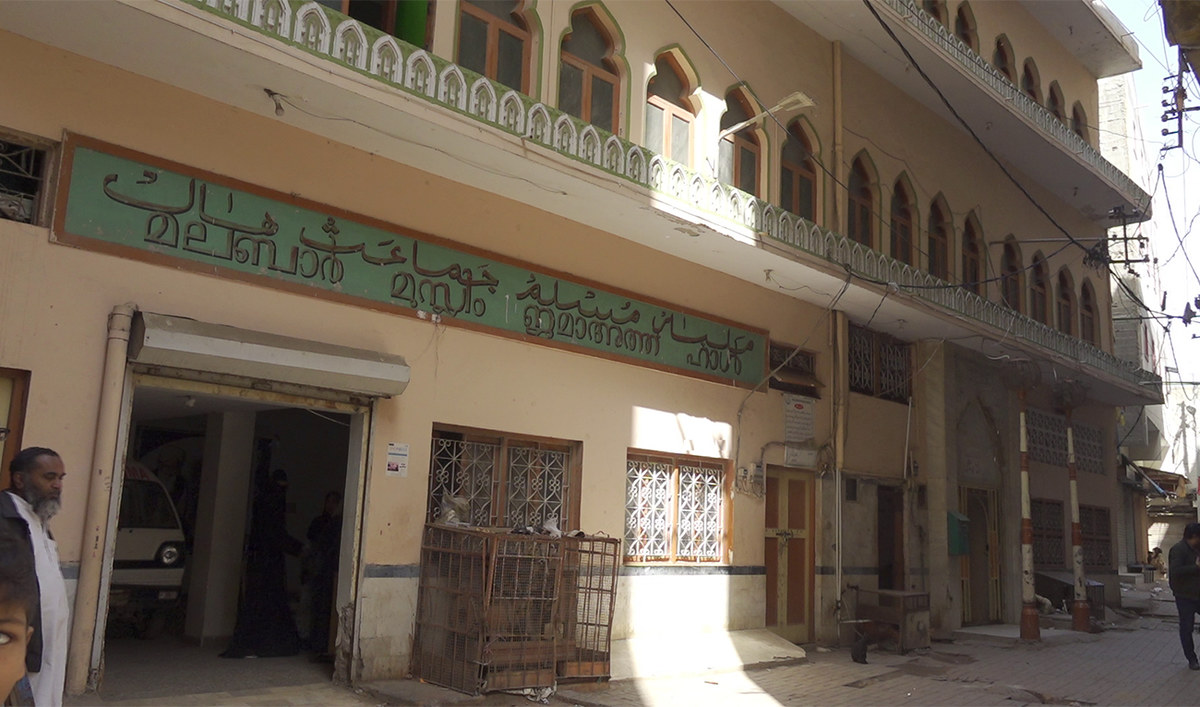
The picture taken on March 8, 2024, shows a Malabari community mosque in Karachi, Pakistan. (AN photo)
Rice, particularly rice flour bread, is a Mayalali staple, Bibi said, and a popular food item for children and the elderly. There are, indeed, a few unifying elements of Malabari cooking, like the use of rice as well as certain varieties of squashes and greens, coconut, fish, peanuts and sesame seeds. Herbs and spices are a potent underpinning, including curry leaves, tamarind and spices such as mustard, ginger, turmeric, coriander, fenugreek, black pepper and red Guntur chilies.
“Banana, fish, and rice flour are used more, we eat these things more,” she explained.
On the menu for the evening is pathiri, a popular rice pancake . Another item being prepared is puttu, steamed cylinders of ground rice layered with coconut shavings, sometimes with a sweet or savory filling on the inside. It is served hot either with sweet side dishes such as palm sugar or banana, or savory ones like chana masala, chutney, rasam, or meat curries. Spicy pathiri, rice flour bread stuffed with semolina, green chili, onions, and an array of spices, will also be on offer.
“FOUR GENERATIONS”
The Malayalis arrived in Karachi from Kerala over a century ago between 1916 and 1918 in search of employment opportunities, said Abdul Rasheed, an official at the Malabari Muslim Jamaat community center, registered in Karachi in 1921 and located in the city’s Kharadar area.
Rasheed estimated the community’s population in Karachi to be between 8,000-10,000 families, or 25,000 to 30,000 members who were scattered across the city but remained tightly knit through regular cultural events and family gatherings.
Abdul Rehman, another member of the community, said the Malayalis had mostly worked in the hotel and restaurant business after they first arrived in Karachi and dominated the culinary scene until three decades ago, when Pashtuns and other migrants from India known as the Urdu-speaking MuHajjirs introduced their cuisines in the metropolis.
“If you go back 25 years ago, you’d [mostly] find Malabari hotels or Iranian hotels,” Rehman told Arab News. “If you wanted to eat spicy food, you’d go to a Malabari hotel, and if you wanted to have milk tea, you’d go to a Malabari hotel.”
Such was the importance of the food business for the Malabari community that when the newly established Pakistani government asked them about their needs, the elders didn’t ask for properties or other assets but something much more trifling: coal, sugar, and tea leaves, essential items to run restaurants, Rehman said.
Today, only a few Malabari restaurants remain, among them the Joona Masjid Hotel run by Abdul Rashid Malabari.
“Consider this hotel as our fourth generation one,” Malabari told Arab News. “Before us, our elders started working here even before the inception of Pakistan, they started the tea business here. Today, this hotel is an 80-year-old legacy in Lyari.”
Among specialties served at the restaurant are fish and lentil rice as well as Malayali paratha, buttered paratha and samovar tea. But the customers are few and far between.
“It’s evident,” Malabari said, “that everything is changing with time.”



